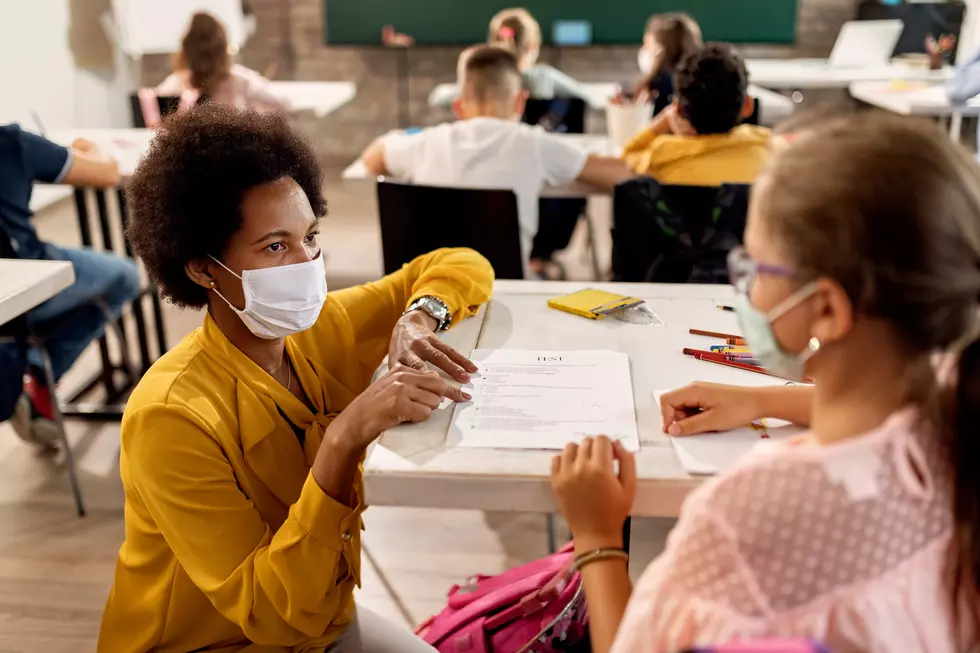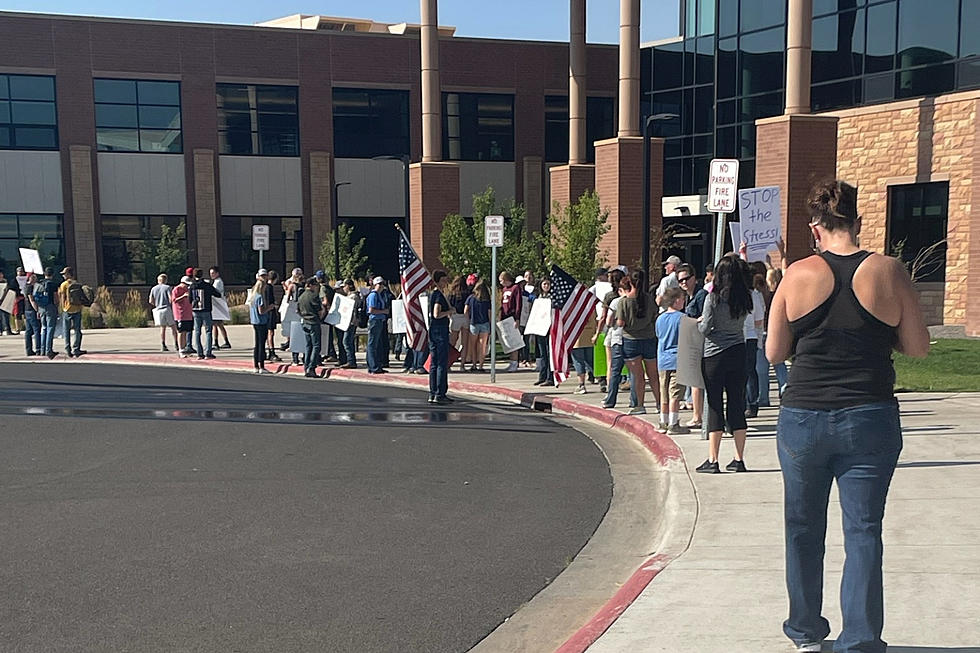
RR Teachers Bring Fresh Ideas and ‘Spark’ to Their Classrooms
LARAMIE -- Two teachers at Rock River, Kelly Vallier, a 5th- and 6th-grade teacher and Stephanie McKinney, who teaches 1st and 2nd graders, were 2 of only 30 teachers nationwide selected to participate at a Teacher Academy in Houston, Texas.
Stephanie said each year teachers meet in Houston for week-long academies where they learn Earth science content, explore hands-on Science, Technology, Engineering, and Mathematics – STEM - activities, and gain real-world science experiences. This academy prepares teachers with geoscience teaching techniques, resources, and tools that they can share with their colleagues and students.
In order to attend you had to be nominated by the school administrator, then fill out an application, submit a resume, and letters of recommendation. This was the first time Albany County Schools were represented at the academy. Wyoming had great representation with 5 out of the 30 teachers. Besides Kelly and Stephanie, the other three WY teachers were from Gillette. There were teachers in attendance from all across the country from Maine to Nevada.
Stephanie said the academy has given her a new look at teaching from the students perspective.
“There are things I took away from the academy personally, and coming back and thinking of getting that spark, and thinking of things from the kid’s point of view. Sometimes, I think we get caught up in all of the stuff we have to do, we lose sight of thinking from the kid’s perspective,” said Stephanie.
Kelly said the academy gave her a fresh look at her teaching methods.
“I walked away with a new excitement for what’s really out there for our kids in the area of science. It starts with us sparking that interest. There is just a whole world open to them as far as careers and being a part of our world, and taking advantage of that.”
“I felt honored to attend this academy. In order to attend you had to be nominated by your admin . . . So, when we got the news that we were selected, we were excited. This academy taught us so much in the area of Geoscience and what ExxonMobil does daily in their operations,” said Stephanie.
Both agreed that the academy helped them discover ways to keep up with new technology that the students seem to take with a grain of salt.
“When I was teaching coding classes with the kids, I was having them help me because it was something new to me that I was also having to learn, but they caught on really fast,” Stephanie said.
“We got to experience the virtual reality stuff. I think our kids are going to be more advanced than I was. I was amazed. We could be on a virtual tour of an oil rig. We can share this with our students now, but they are still more advanced than what we think they are!” said Kelly.
“It sparks our drive,” Stephanie said. “When we get excited about a subject, we can pass that on to the kids.”
Depending on the school and the class in Albany County schools, students have access to Chrome books and iPads available for some of the new virtual reality programs they brought back from the academy. The VR programs allow them to go on virtual reality field trips to museums and other points of interest.
“We learned a lot about some of the apps available for the kids to experience some of these places,” said Kelly.
They said one important message from this experience was this: all teachers have the same 7 hours with their students, and it's up to you how you use it. Stephanie said this message was presented with the idea of integrating subjects as opposed to the traditional teaching of each subject in isolation. This concept gives students the opportunity to apply knowledge from one subject area to another, for example, using writing skills to describe a recipe that also requires math skills to calculate recipe proportions.
“It’s important for all students, to be able to expose them to a variety of subject areas. We need to stop teaching segmented subjects and figure out ways to bring them together. We had already started that with our reading curriculum, bringing in some of those science and social studies aspects while we’re teaching the English Language Arts. Now it pushes us more to integrate those content areas,” Stephanie said.
“Teaching kids as the whole child, not just ‘here’s your math, here’s what to read,’ but adding Arts and Culture. That’s a great way for kids to express themselves. It’s holistic teaching, we’re teaching to every aspect of who they are,” Kelly said.
Funding from ExxonMobil and AGI covers academy-related costs for the K through 8 teachers, including travel within the U.S. to Houston, meals, lodging, and educational materials. Participants have opportunities to interact with their peers from other locations, gain skills and knowledge for teaching Earth and space science, and develop plans for presenting effective teacher workshops.
“Having the opportunity to attend these academies and conferences keeps us excited. It keeps the drive there for me. Having that support for teachers is what we need,” said Stephanie.
“It keeps kids moving toward the future. They go out to the year 2040, and these things are going to be around,” Kelly said.
More From KOWB 1290









